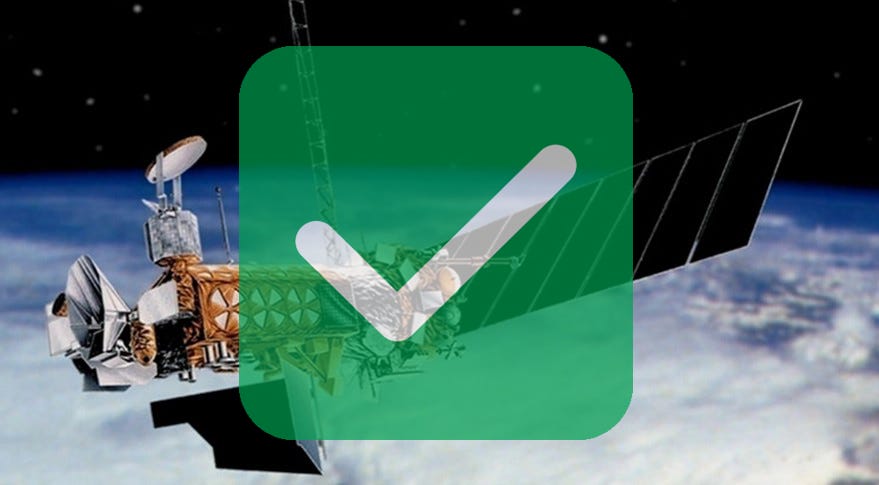BREAKING: Department of Defense Makes Eleventh Hour Decision to Maintain Critical Hurricane Satellites
After critical feedback, Navy officials step in to keep data flowing from three U.S. Defense-operated weather satellites scheduled to go dark this week
In a late-breaking development Tuesday morning, the U.S. Department of Defense alerted NOAA officials that is had cleared the way to continue processing and transmitting vital data from three weather satellites, despite plans as late as Monday to prematurely terminate the data stream by the end of the week due to cybersecurity concerns.
It’s a surprising reversal from officials who confirmed with me this week that they would terminate no later than Thursday an extensive suite of satellite data essential to estimating and predicting the strength and path of hurricanes.
Although the three weather satellites are expected to reach the end of their lifespan in the next year or two, the sudden announcement in June that the satellite data streams would be cut early and only weeks before the hurricane season peak caught forecasters flatfooted. The lack of notice sent scientists scrambling to find ways to cushion the significant blow the sudden outage would have on forecasts this hurricane season.
As we reported on Monday, the software the Defense Department uses to communicate with their satellites dates back to the 1980s, and officials cited concerns that the software doesn’t meet their present-day information assurance compliance.
In a statement issued to me this afternoon, a Navy spokesperson credited feedback it received about the Department of Defense’s move to sunset the satellites early for their eleventh-hour decision to keep the data flowing. “Officials found a way to meet modernization goals while keeping the data flowing until the sensor fails or the program formally ends in September 2026,” a Navy spokesperson told me.
I also spoke with NOAA who confirmed with me they would continue to receive data from the Defense Meteorological Satellite Program (DMSP) which owns and operates the three weather satellites. “NOAA will continue to have access to data from the Defense Meteorological Satellite Program for the duration of the Program’s life span,” NOAA said in a statement.
I’ve also confirmed with scientists responsible for developing and maintaining NOAA’s crucial hurricane models and AI-powered algorithms that they won’t suffer any hiccups this hurricane season since data from the satellites will continue to flow.
The last-minute move averts a crisis for forecasters who rely on the data to predict dangerous and potentially deadly episodes of rapid intensification and their computer models that use data from these microwave imagers to predict the movement and intensity of hurricanes.
It’s not clear why the plan wasn’t to fix the security issue from the outset, but the pushback from experts like me and government partners convinced Department of Defense officials the issue was one that needed to be addressed.



Thanks for your and others' work to keep this important data flowing. I'm sure you saved lives today. 👍
Great news--always look forward to your updates!